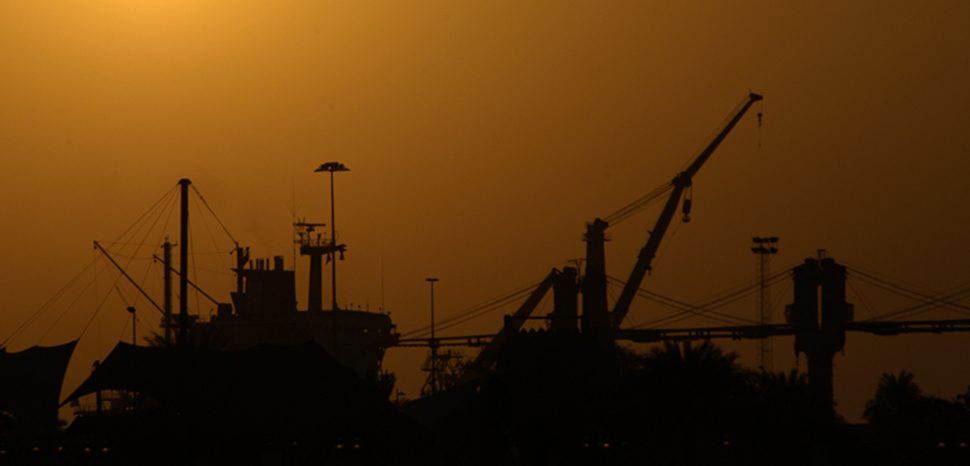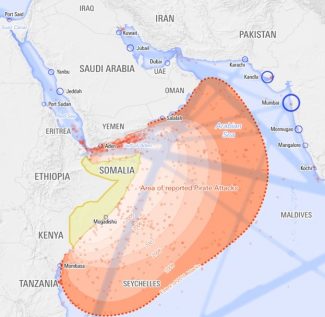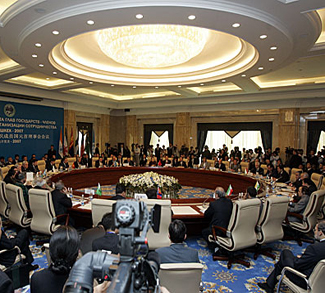It is undeniable that there are ongoing political shifts in the Middle East. They are evident from some of the ongoing developments over the past months, including but not limited to China’s increasing influence in the region, some of the Arab nations indirect support for Russia, Saudi Arabia’s position on oil production cuts, Saudi-Israeli hurdles in normalization talks, the Saudi-Iran agreement, Iran’s current reconciliation attempts with Egypt, Syria’s readmission to the Arab League, and the United Arab Emirates (UAE) withdrawal from the US-led maritime security coalition. These developments overall present unprecedented challenges to the United States (US). In this respect, most of the Arab nations are close allies of the US and have had their foreign policies aligned with those of the US over the past decades. However, actions on the ground nowadays say otherwise.
While the global political ramifications of the ongoing transformations in the Middle Eastern political terrain are yet to be observed, it is worth noting that there may be significant economic implications and opportunities to be explored. One potential avenue for revitalizing Syria’s economy in the aftermath of a decade-long civil conflict is the implementation of the “Five Seas” initiative, which could serve as a catalyst for rapid economic growth. Moreover, the proposed vision will enable Arab nations to strategically collaborate on achieving a mutually beneficial economic outcome at the national level. In these politically charged times, it is imperative to acknowledge the leadership of the Kingdom of Saudi Arabia (KSA) in spearheading the region’s economic diversification investments. Similarly, Egypt’s ongoing infrastructure mega-developments are pivotal in realizing the country’s economic growth ambitions.
The Syrian government first introduced the “Five Seas” vision in 2004 with the intention of increasing its regional geopolitical and economic clout. The strategic proposal primarily encompasses the five seas surrounding Syria, namely the Mediterranean Sea, the Red Sea, the Black Sea, the Caspian Sea, and the Arabian Gulf. The underlying objective of the proposal is to establish robust economic and political alliances between Syria and the participating nations, thereby expanding Syria’s influence beyond its immediate vicinity. Moreover, the proposed strategy prioritizes the establishment of a dependable infrastructure for transportation that interlinks the five seas, thereby enabling seamless trade and commerce among neighbouring nations. In this regard, the objective of the transportation infrastructure is to enhance regional commerce through collective efforts. Therefore, contributing to the advancement of global economic development and prosperity for all nations concerned. Furthermore, the “Five Seas” initiative endeavours to foster politically advantageous diplomatic relations between Syria and neighbouring nations in the region. The current political climate suggests that Syria’s recent readmission to the Arab League has made it highly feasible for the country to establish stronger diplomatic ties with key Arab leaders, as evidenced by the warm welcome extended to Syrian President Bashar al-Assad during the Arab League Summit in Jeddah in May 2023.
On a domestic development scale, the Five Seas Plan includes several critical elements for Syria. Firstly, the development of Syria’s sea ports will enable the country to handle larger volumes of goods and cargo. This move will increase Syria’s trade capabilities and act as a source of national revenue. The plan also considers Syria’s role in the global energy market. The country’s geographical location makes it a crucial player in the transportation of oil and gas from the Middle East to Europe. Thus, effective and efficient transportation of these key resources will provide Syria with bargaining power as well as secure its position in the global energy market. In this respect, it is worth noting that prior to the eruption of the civil war in Syria, there were talks concerning the development of gas pipelines connecting Qatar-KSA-Jordan-Syria as well as a pipeline connecting Iran-Iraq-Syria, from which both pipelines would be connected to Turkey and then to Europe. Thus, in respect to the latter, the pursuit of both pipelines under a Middle Eastern Five Seas unified vision may serve as a game-changer as to how the Middle East can supply gas to Europe with ease, especially now that we saw how the geopolitical impact of the Ukraine war affected the sustainability of Russian gas supply to Europe. Furthermore, besides the economic returns to the Gulf Cooperation Council (GCC) countries from the increased potential of sustainable oil and gas supply to Europe, Iran would also be presented with a set of incentives that can allow it to integrate constructively in the region as well as gradually become an important trade partner to Western nations because of gas supply via Iraq-Syria. Thus, giving the Western community and the GCC strategic negotiation leverage when pressuring Iran to possibly give up on its nuclear ambitions or at least limit its development in return for its inclusion in such an ambitious economic plan, therefore contributing to regional stability and international security. Theoretically, this can be feasible given that Iran has already concluded the Chinese-brokered agreement with KSA in March to normalize relations. Furthermore, reconciliation attempts between Iran and Egypt are currently in process, which may increase the prospects of the possible initiation of Syria’s Five Seas Plan, given that established relations between Iran, the KSA, and Egypt are critical for the success of the plan.
The advantages derived from the Five Seas Plan are not solely confined to Syria’s domestic economy or streamlining the GCC’s oil and gas transportation to Europe; they also enable the economically engaged nations in the plan to reap benefits. As a nation that has experienced significant diplomatic tensions with the Syrian government in recent years, Turkey stands to benefit economically from the plan. Turkey’s strategic position in the region cannot be underestimated, as it has access to multiple seas, namely the Black Sea, the Mediterranean Sea, and the Aegean Sea. The proposed Five Seas Plan by Syria may have significant economic and geopolitical implications for Turkey. From a political standpoint, Turkey stands to greatly benefit from Syria’s proposed Five Seas Plan, which would bolster trade routes and further solidify Turkey’s strategic position as a key transit hub for goods moving between Europe and Asia. This would undoubtedly have a positive impact on Turkey’s economy. Moreover, Turkey’s astute engagement with neighbouring nations implicated in the plan will result in amplified accessibility to additional maritime territories, which could potentially augment Turkey’s commercial centre, thereby unlocking more markets and boosting regional trade affiliations. The proposed plan by Syria to establish rail and road transport networks connecting the Caspian Sea to the Arabian Gulf also holds immense political significance for Turkey, owing to its strategic location. Syria’s plan could increase Turkey’s energy security by allowing for a more diverse range of energy supply routes. Thus, making Turkey and, consequently, Europe dependent on different energy sources and therefore reducing the risk of supply disruptions. This would be particularly important given Turkey’s and Europe’s reliance on Russian gas supplies over the past decades. Considering the geopolitical implications, the proposed five-seas strategy for Syria has the potential to enhance Turkey’s regional influence and foster better diplomatic ties between the al-Assad regime and the Turkish government, following a prolonged period of strained relations. Furthermore, the persistent efforts of Russia to assert its dominance over the Black Sea region persistently undermine Turkey’s strategic interests. The proposed plan by Syria could potentially provide Turkey with enhanced political leverage to counteract Russia’s influence in the region.
Similarly, Egypt, which is strategically located on the Mediterranean and Red seas, can potentially benefit immensely from Syria’s Five Seas Plan. Firstly, Egypt’s ports will become even more important for international trade if they relate to Syria’s plan for other seas. Currently, Egypt’s ports are among the busiest in the region due to their proximity to Europe, Asia, and Africa. With the implementation of a more coordinated plan for the five seas, the availability of more trade routes will increase trade and commerce between countries and, consequently, increase the importance of Egypt’s strategic maritime location and Suez Canal. Secondly, the plan will enable Egypt to tap into new markets and diversify its economy. It will open opportunities for new trade routes and partnerships, which can increase exports and lower import costs. This will help Egypt reduce its dependence on a few trading partners, align itself with emerging markets in the East, and increase sources of foreign currency income, which is a critical matter for the country. Thirdly, the Five Seas Plan offers Egypt the potential to develop new infrastructure projects, something that country has been betting on over the past few years for its economic growth. Through collaboration with Syria and other regional countries and the development of strategic infrastructure such as seaports, roads, railways, and pipelines, this will create new jobs and opportunities for local businesses as Egypt becomes a hub for trade and foreign investment in the region. Most importantly, with the increasing demand from the European Union (EU) for Egyptian gas, the Five Seas Plan could serve Egypt’s strategic interests by increasing gas sales to the EU. Finally, the plan will also enhance Egypt’s political influence in the region. Through collaboration and collective interests, relations between Egypt and all countries in the Five Seas Plan can be strengthened, leading to a more stable and peaceful Middle East.
For KSA, the implementation of the Five Seas Plan could potentially yield substantial benefits. The proposed plan has the potential to aid in the diversification of KSA’s trade routes and diminish its reliance on the Strait of Hormuz, a crucial bottleneck in the Arabian Gulf. The proposed initiative to link Syria with the Red Sea and Mediterranean Sea would bolster Saudi Arabia’s oil trade by establishing fresh maritime pathways for imports and exports. This would enhance the stability of the supply chain and mitigate the likelihood of any possible interference with the worldwide energy supply. Furthermore, the aforementioned regional project holds the capability to enhance economic collaboration among Saudi Arabia and Syria, along with other neighbouring nations like Egypt and Turkey. The advancement of novel ports, logistics hubs, and transportation infrastructure in the area has the potential to generate fresh commercial prospects for Saudi enterprises and financiers while simultaneously fostering unparalleled regional integration and stability. Furthermore, the implementation of the Five Seas Plan could potentially bolster KSA’s political standing within the Middle Eastern region. Through the facilitation of novel transport and trade corridors, KSA has the potential to further bolster its sway over regional trade flows and fortify its strategic alliances with pivotal partners such as Egypt, Jordan, Turkey, and the GCC countries.
On a more extended scale, the implementation of the Five Seas Vision has the potential to enhance strategic partnerships between the Middle East and Western nations, including the United States, as well as other influential global powers like Russia and China. If effectively executed, the plan has the potential to enhance international commerce and promote stability in the global supply chain. Moreover, considering the substantial amounts of regional investments in infrastructure development and other sub-sectors, it is probable that multinational corporations will have an equitable participation in said development. From a geopolitical standpoint, it is possible that China perceives the aforementioned plan and its correlated infrastructure advancements to align with its ambitious Belt and Road initiative. Henceforth, securing the strategic attention of Chinese enterprises and investments. In light of the economic and geopolitical significance of the proposal, it is probable that the Western community and the United States will become involved in order to safeguard their economic and political interests in the region. Yet It is important to acknowledge that the GCC’s combined wealth funds, totalling over 3.8 trillion USD, possess the potential to provide a robust foundation for the implementation of the Five Seas Plan while simultaneously bolstering the GCC’s regional economic prowess. This is especially true for the UAE which is a regional pioneer in seaport operations and already has an established robust presence in acquiring, developing, and operating a network of seaports across the world. From a political standpoint, the UAE’s potential role in advancing the Syrian Five Seas Plan is noteworthy, particularly in light of its status as the first GCC nation to formally invite President al-Assad in 2022 and foster closer UAE-Syrian relations.
Undoubtedly, the implementation of the Five Seas Plan poses potential risks and challenges that must be taken into consideration. One of the foremost political challenges is the prevailing security situation in the region. The geopolitical landscape of the region has been marred by internal strife in some of the participating nations, which poses a grave threat to the smooth functioning of trade channels and heightens the vulnerability of the area to security challenges. Moreover, the geopolitical and national security ramifications of a highly interconnected and interdependent Middle East could be perceived as a challenge or rivalry by established international trade powers that possess distinct geostrategic stakes in every geographical area that could reap advantages from the Five Seas Initiative. Notwithstanding the potential drawbacks, the advantages of the proposal may surpass them, and it has the potential to significantly contribute to the progress of regional economic growth, stability, and the fortification of a cohesive regional trade strategy. From a geopolitical standpoint, the proposed initiative aims to provide numerous advantages to the participating nations in the Middle East region, such as enhanced economic collaboration, trade, collective political clout, bolstered supply chain resilience, diversified economies, energy security, and job creation. Although there are certain obstacles and risks related to implementing the strategy, the possible benefits render it a convincing prospect for the Arab nations to address.
The views expressed in this article belong to the authors alone and do not necessarily reflect those of Geopoliticalmonitor.com.




